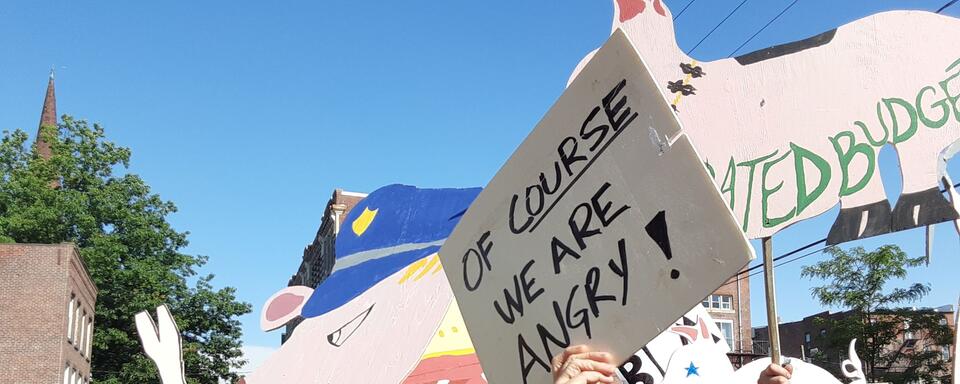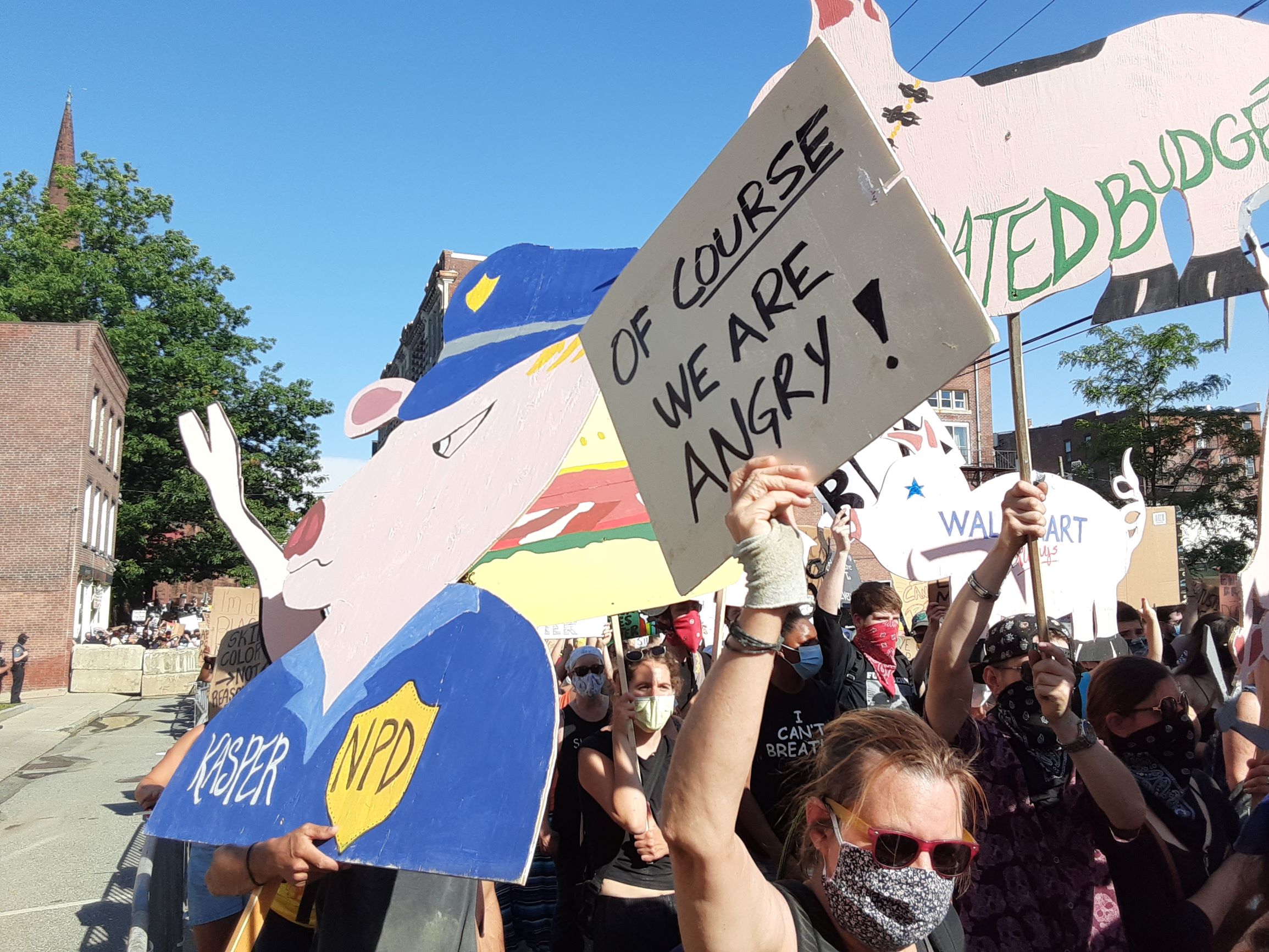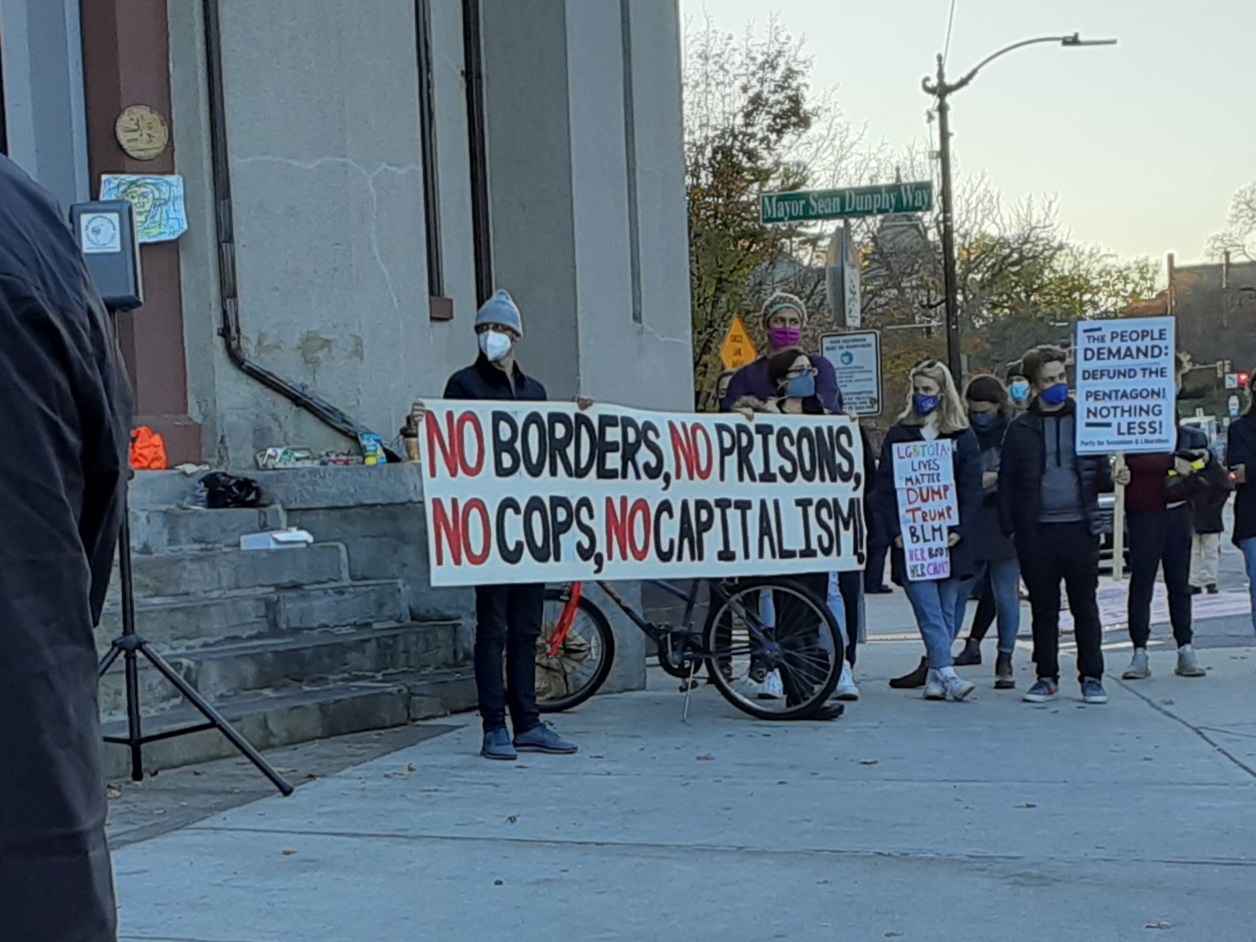
Rethinking Global Justice in an Era of Far-Right Nationalism and Unrepentant Capitalism
Guest post by Bryant William Sculos
For those committed to the project of global justice—whether they call themselves progressives, liberals, social democrats, socialists, anarchists, or Marxists—it may be tempting in this period of resurgent far-right nationalism, global revanchism, and zombified neoliberal capitalism to turn inward, to turn hyper-local, in the fight for a humane and just existence for the people (and not insignificantly, non-human life) on the planet. The COVID-19 pandemic has only accelerated the popularity of these trends. In other words, abandoning the struggle for a truly global justice seems reasonable in the face of the perverse successes of the contradictory collaboration of the radical center, milquetoast liberalism, and the racist, cisheterosexist far-right. Community and self-defensive, often identity-based, harm-reduction politics are also increasingly attractive to many. And while these political perspectives have merit and must have a place in a more transformative approach, losing sight of the global political-economic order that empowers and emboldens the injustices we experience on a daily basis is an existential problem for the pursuit of global justice. In academia, and among not few enough activists, it is far more acceptable to analyze and criticize (and propose alternatives to) structural racism, cisheterosexism, anti-democracy, and environmental harms in isolation from one another but most crucially in isolation from the capitalist political economy that makes these practices and worldviews profitable and enduring. It isn’t that there is no attention to political economy in academic and activist spaces though, but it must be emphasized that a critique of neoliberalism (or merely the excesses of capitalism) is not necessarily (and often explicitly is not) a critique of capitalism as such.
The foundational acceptance of capitalism pervades everyday life for billions, but The Dialectics of Global Justice: From Liberal to Postcapitalist Cosmopolitanism principally explores the contradictory implications of the ways that the psycho-social conditions and normalization of capitalistic behaviors, and ideas infiltrate the scholarship of academics and intellectuals working within the cosmopolitan global justice tradition. The book does this by drawing on, among others, the work of Frankfurt School Critical Theorists Theodor Adorno and Erich Fromm. Like all the non-academics shaped and integrated into the capitalistic mentality, cosmopolitan scholars, even those who consider themselves critical theorists and radicals, have thus far failed to disentangle their own theorizing and policy proposals from the capitalist system that represents the greatest structural barrier to the broader achievement or progress toward global justice. And it is not merely that capitalism inhibits progress against racism, cistheterosexism, ecological harm, and undemocratic politics (though it is that too), and it is not merely that this current period of excessive neoliberal capitalism is particularly harmful (since this implies that there is some form of capitalism that would not be harmful); capitalism itself is a global injustice. Therefore, a cosmopolitan conception of global justice and global capitalism are, both practically and ethically, incompatible.
"Of course we are angry" taken by Bryant William Sculos (June 6, 2020; Northampton, MA, USA)
The material and ideological (or psycho-social) aspects of capitalism together (re)produce an unjust global order while also (re)producing a population that is apparently less able or less willing in diverse and complicated ways from locating the sources of their oppressions and harms they experience within the system of capitalism, which means the critique of capitalism as such is quite difficult. Difficult but not impossible. It is not the case that capitalism is a problem for the pursuit of cosmopolitan justice due exclusively to its psycho-social power though; we cannot understate the reality that the global capitalist (dis)order is pervaded by physical violence (e.g., military force and wars and policing and prisons) that literally prevent radical change—and then also produces a wider climate of fear, which further disincentivizes more open assaults on, and efforts at building alternatives to, global capitalism. However, it remains the case that despite the enormous roadblocks that capitalism represents in the struggle for a just world, the subjects of capitalism—those ensconced in the capitalistic mentality—are the only people who can produce a globally just world beyond capitalism. And so, it is not merely that nonrevolutionary political thinkers need to take heed of the infiltrating harms of capitalism, but revolutionary or transformative political theorists and activists who must also take seriously the countervailing function of the capitalistic mentality on the very people who must necessarily produce a democratic, egalitarian, ecologically-just postcapitalist order.
The Dialectics of Global Justice also gestures towards something of a solution by theoretically resolving the contradictions of cosmopolitanism and capitalism. Building on the concept of radical reform articulated by Fromm in the middle on the twentieth century, this project defends a radical transformational project that is at once pessimistic, hopeful, and realist(ic). Put very simply, the argument is that those interested in cosmopolitan global justice must think through and articulate how it is that their theories and proposals will make progress not merely towards abstract ideals of global justice but specifically how they will make progress in counteracting capitalism and its capitalistic mentality and build towards a democratic, egalitarian, ecologically-just postcapitalist alternative. This can be done, in part, by pursing policies—through social movements and radicalized organized labor movements—that through their pursuit and achievement draw out the limits of capitalism while also teaching broader populations that there is a wide swath of policies that could be pieces of a systematic political-economic alternative to capitalism that can make their lives better in the short, medium, and long-term. Policies like a more radical version of the Green New Deal or a thick conception of universal basic income (UBI) are just two possible examples.
COVID-19 responses pursued by many nation-state governments also offer something of an example of radical reforms (or could). For those in the US, before 2019/2020 it would have seemed absurd to suggest that the government decree the expansions of supplemental food programs (SNAP/food stamps), rent/mortgage/eviction moratoriums, and multiple substantial direct cash payments to people in need. And yet, this is what was demanded and accomplished. The lack of a robust movement to achieve these demands and the psycho-social rationalizations that there was a unique need for these policies during the pandemic hindered the longer-term impact on peoples’ thinking, but these unprecedented policies speak to the feasibility of refusing business-as-usual. Capitalism is and has been in crisis in various ways for decades now. The people of the planet live these crises daily—and countless fail to survive them. The contradiction here is that the emergency is mundane—and we all need emergency political economic alternatives daily.
"No Borders, No Prisons, No Police, No Capitalism" taken by Bryant William Sculos (Nov. 4, 2020; Northampton, MA, USA)
An implicit motivation of The Dialectics of Global Justice is to get academics—theorists and those who identify with progressive and radical political traditions especially—to think of their personal and scholarly relationships to capitalism. Capitalism has been undermining higher education for years now as campuses become malls, proliferating administrators become business managers, aspirational students become hyper-indebted consumers, and faculty become contingent workers (who too often fail to see themselves as working class). The so-called “knowledge economy” is still capitalism, and academics and all those involved in higher education need to see themselves as exploited workers participating in—and frequently legitimizing—an unjust system. In this way, the contradictions at the heart of the pursuit of global justice and the pursuit of a just system of higher education are intrinsically related.
This blog post marking the release of the paperback edition of The Dialectics of Global Justice is dedicated to all those struggling and organizing for a better world, particularly on college campuses in the US and around the world: undergraduate and graduate student-workers, adjunct and temporary faculty, and all of the laborers—including those at university presses like SUNY Press—who do the necessary physical, intellectual, and emotional work that makes university life possible under terrible economic conditions every day.
Bryant William Sculos is Lecturer in the Department of Political Science at the University of Texas Rio Grande Valley.



